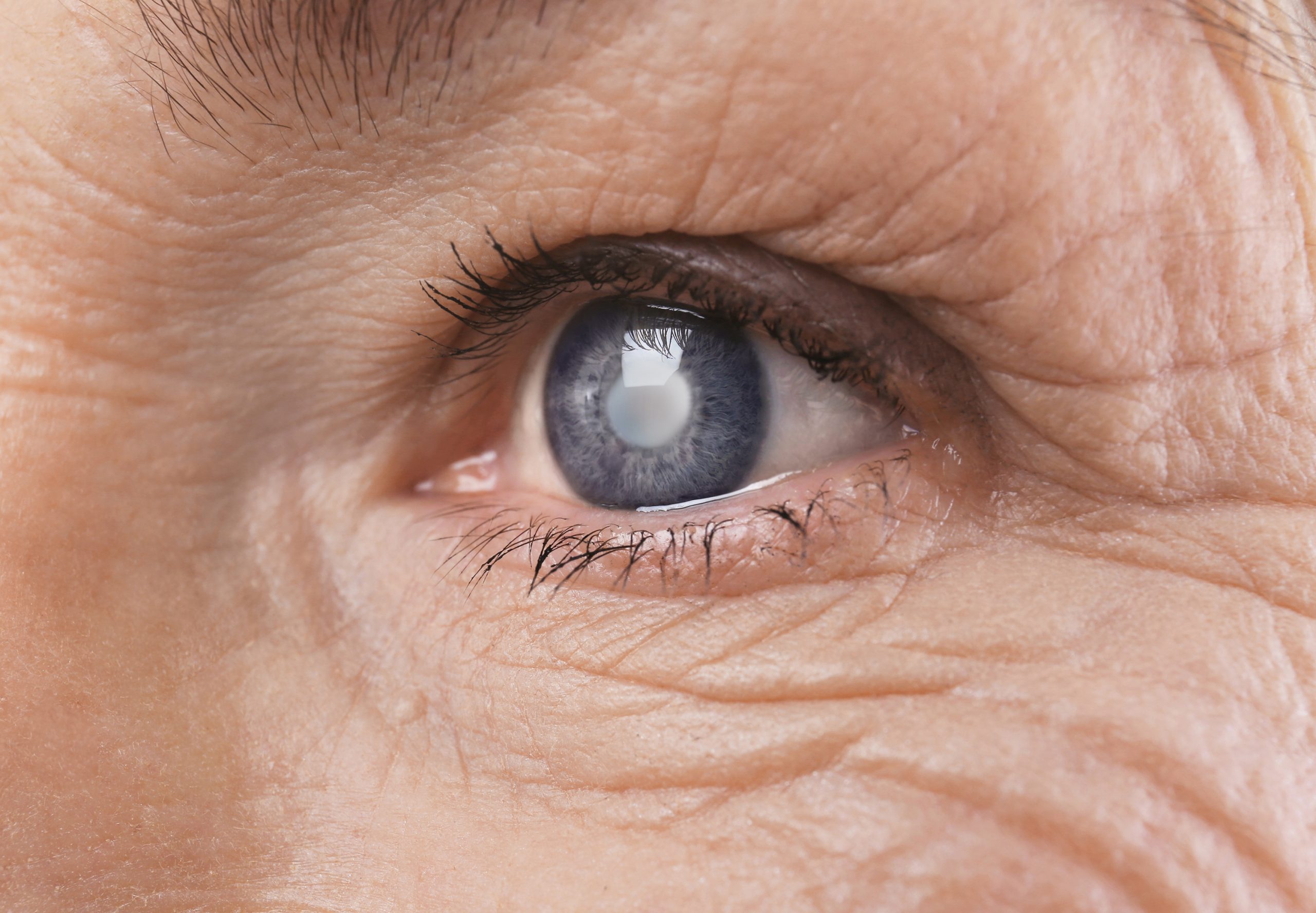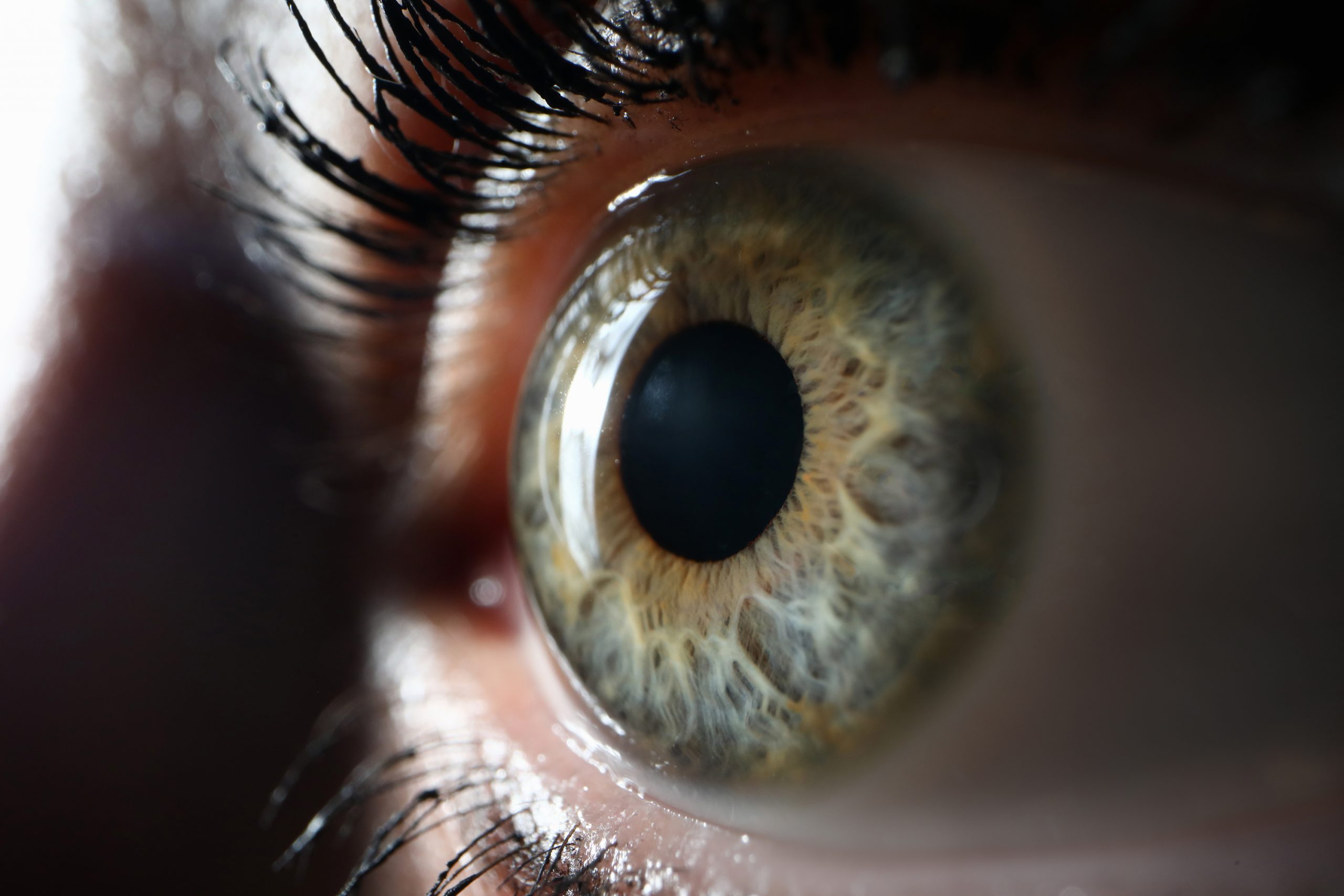EYE HEALTH
Our eye care specialists will come to the patient’s home or care home, perform a comprehensive eye test, and talk to them about the results right then and there. Find more information about common eye health issues below.

CATARACTS
A cataract is clouding of the lens inside the eye. Cataracts usually form slowly, and most people experience a gradual blurring of vision.
How Cataracts Affect Vision:
In a normal eye, the lens behind the iris and pupil is clear. This lens helps focus light rays on to the back of the eye (the retina), which then sends messages to the brain allowing us to see.
When a cataract develops, this lens becomes cloudy and prevents the light rays from passing on to the retina, causing your eyesight to become blurred and fuzzy.
How Are Cataracts Caused?
The normal process of ageing causes the eye lens to harden and become cloudy. Age-related cataracts are the most common type and can occur after the age of 40. Although most cataracts are age related, there are other types, including congenital, drug induced (steroids), and traumatic (injury to the eye). Cataracts can be more common in people who have certain diseases, such as diabetes.
Treatments for Cataracts
Surgery is the only available treatment for cataract and is very effective, straightforward and quick for most patients. The Sight Care At Home eye care specialists are able to refer patients to their GP or hospital for cataract treatment.
GLAUCOMA
Glaucoma is the name given to a group of eye conditions in which the optic nerve is damaged. Glaucoma is one of the world’s leading causes of blindness. In the UK, about 2% of the population over 40 have the condition.
Although any vision which has been lost to glaucoma cannot be recovered, with early diagnosis, monitoring and regular use of the treatments, further damage to vision can be prevented. While there are usually no warning signs, regular eye tests will help detect the onset of symptoms.

How Glaucoma Affects Vision:
The eye needs a certain level of pressure to keep its shape. If eye pressure gets too high, it squeezes the optic nerve and kills some of the nerve fibres, which leads to sight loss. If the glaucoma is left untreated, the damage can progress to tunnel vision and eventual loss of central vision, although blindness is rare.
Our eye care specialists are trained in identifying and treating glaucoma. Treatments vary and may include eye drops and laser surgery.

Diabetic Retinopathy
Diabetic retinopathy is a complication of diabetes, caused by high blood sugar levels damaging the back of the eye (retina). It can cause blindness if left undiagnosed and untreated.
It takes several years for diabetic retinopathy to reach a critical stage where it could threaten your sight, so it is best to catch this condition early.
To Minimise Risk, People with Diabetes Should:
- Ensure they control their blood sugar levels, blood pressure and cholesterol
- Attend regular diabetic eye screening appointments to identify issues early on
How Diabetes Can Affect the Eyes:
The retina, the light-sensitive layer of cells at the back of the eye, needs a constant supply of blood in order to send signals to the brain, which turns them into the images you see. Over time, a persistently high blood sugar level can damage these blood vessels and result in diabetic retinopathy.
What Does A Diabetic Retinopathy Eye Examination Involve?
A diabetic retinopathy eye examination involves checking your eyes uses an ophthalmoscope to view the retina. People with diabetes need to have both retinas examined.
They will first dilate your pupils using special eye drops, to allow them a clear view of the retina. Then they may also use a bright light, together with a small hand-held lens to examine your eye. Remember – people with diabetes can have free eye examinations by their optometrist.
What Is the Treatment for Retinopathy?
A laser is used to stabilise the retina and the leaking blood vessels.
Floaters and Flashes
Floaters and flashes in your vision are common and are not usually serious.
If you sometimes see small dark dots, squiggly lines, rings or flashes of light in your vision, it’s usually not a sign of anything serious, especially if:
- You’ve had them for a long time
- They’re not getting worse
- Your vision is not affected
- Any sudden changes to these get in touch with us ASAP
GET IN TOUCH
If you have any questions about our services or would like to book a home appointment with one of our qualified eye care specialists, please get in touch by telephone or email below - we'll be delighted to hear from you!
